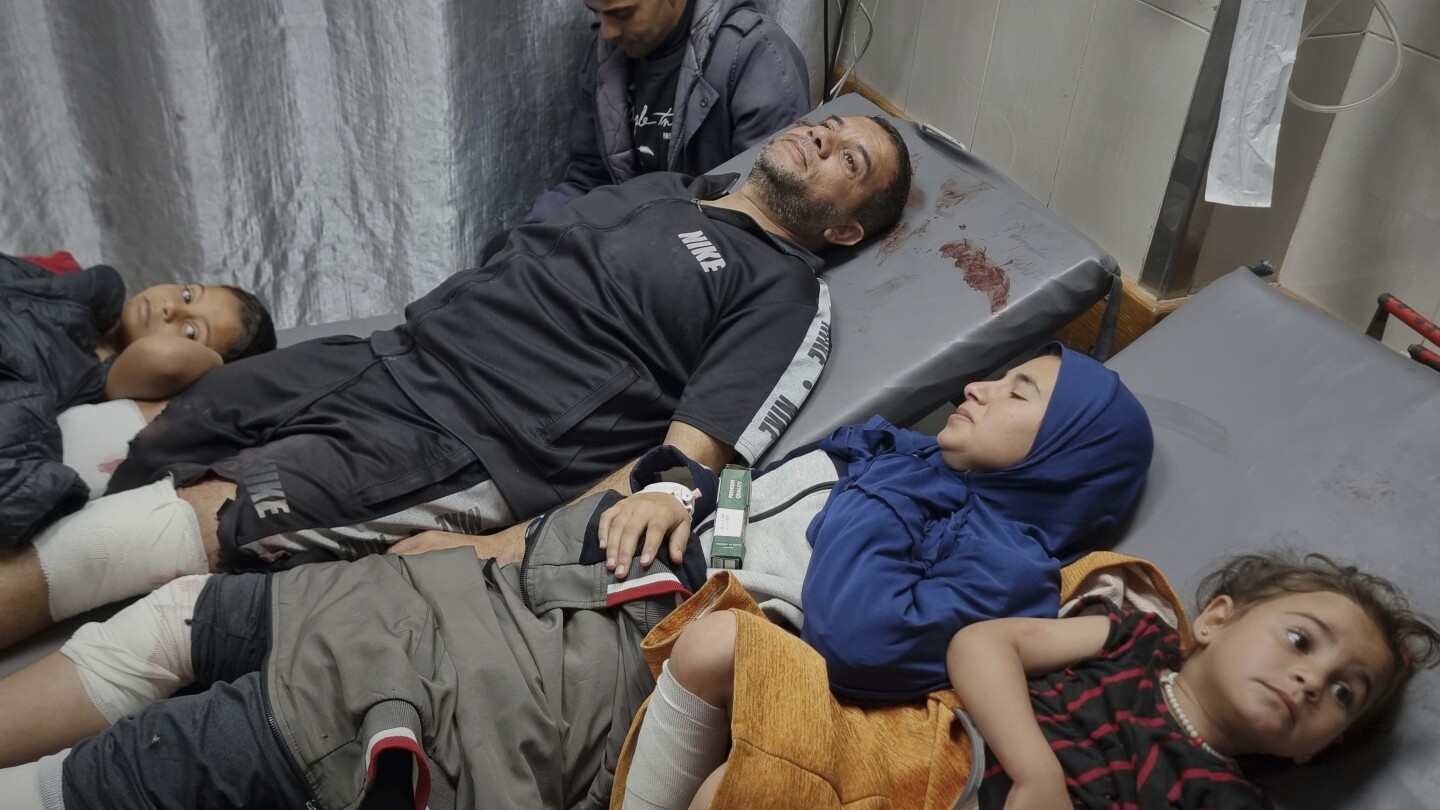Renewed Violence: Israel Launches Airstrikes on Gaza, Claims Over 200 Lives
In a dramatic escalation of conflict, Israel has intensified its airstrikes on Gaza, resulting in the deaths of at least 200 individuals. This surge in violence comes as negotiations for a ceasefire have faltered, raising concerns about the ongoing humanitarian crisis in the region. The situation has rapidly deteriorated, and it is crucial to understand the implications of these events, the historical context, and the urgent need for a resolution.
The Background of the Conflict
The Israeli-Palestinian conflict has a long and complex history, rooted in territorial disputes, cultural disagreements, and historical grievances. The Gaza Strip, a small but densely populated area, has been a focal point of this conflict, particularly since Hamas, a Palestinian militant group, took control of the territory in 2007. Since then, the region has been under an Israeli blockade, leading to severe economic and humanitarian challenges.
Over the years, multiple attempts at peace talks have faltered, often derailed by escalations of violence, mutual distrust, and political divisions. The recent airstrikes mark one of the most significant escalations in recent history, with Israel citing security concerns and the need to dismantle Hamas’ military capabilities as justifications for its actions.
Details of the Recent Airstrikes
The airstrikes, which began in the early hours of a recent morning, targeted various locations across Gaza, including residential areas, infrastructure, and suspected militant sites. Eyewitness reports describe the chaos and devastation, with many families caught in the crossfire. Hospitals in Gaza, already overwhelmed by the ongoing health crisis, are struggling to cope with the influx of casualties.
According to local health officials, more than 200 individuals have lost their lives, including women and children. The impact of these strikes extends beyond immediate casualties; they exacerbate the already dire humanitarian conditions in Gaza, where access to essentials such as food, water, and medical supplies is severely restricted.
The Humanitarian Crisis Deepens
The ongoing violence has led to an escalating humanitarian crisis. The United Nations and various humanitarian organizations have repeatedly warned about the deteriorating conditions in Gaza. The blockade, combined with the recent airstrikes, has created a situation where basic human rights are compromised.
- Access to Clean Water: Many residents lack access to safe drinking water, leading to health risks.
- Healthcare Access: Hospitals are overwhelmed, and medical supplies are running out.
- Food Insecurity: With the economy in shambles, many families struggle to provide adequate nutrition.
The plight of civilians in such conflicts often gets overshadowed by political narratives. However, it is crucial to remember that the people of Gaza are enduring unimaginable hardships, often paying the highest price for the political failures of their leaders.
The Stalled Truce Talks
As violence escalates, efforts for a ceasefire have stalled. Initial discussions aimed at brokering a truce faced numerous setbacks. Different factions within Palestinian leadership, coupled with Israel’s insistence on security guarantees, have complicated negotiations.
International actors, including the United States and European nations, have urged both sides to de-escalate tensions and return to the negotiating table. However, without a commitment from both sides to genuinely pursue peace, the cycle of violence seems poised to continue.
The Role of International Community
The international community has a pivotal role in addressing the conflict. Humanitarian aid is essential, and nations must work together to provide immediate assistance to those affected by the violence in Gaza. Moreover, international diplomacy is critical in facilitating dialogue between the conflicting parties.
Some potential avenues for international involvement include:
- Humanitarian Aid: Increasing support for humanitarian organizations working on the ground to provide relief.
- Diplomatic Pressure: Encouraging both Israel and Hamas to engage in constructive dialogue.
- Monitoring Violations: Holding parties accountable for violations of international humanitarian law.
Looking Ahead: The Need for Lasting Solutions
As the situation in Gaza continues to evolve, it is imperative to focus on long-term solutions. Short-term ceasefires may provide temporary relief but do not address the underlying issues fueling the conflict. A comprehensive peace framework must be established, focusing on:
- Recognition of Rights: Acknowledging the rights and aspirations of both Israelis and Palestinians.
- Security Guarantees: Addressing legitimate security concerns while ensuring safety for civilians.
- Economic Development: Investing in the economic infrastructure of Gaza to foster stability and growth.
In conclusion, the recent airstrikes on Gaza underscore the urgent need for renewed efforts toward peace and reconciliation. With over 200 lives lost and countless others affected, the humanitarian crisis demands immediate attention. While the path to peace is fraught with challenges, the international community must remain engaged, advocating for justice, human rights, and a future where both Israelis and Palestinians can coexist peacefully. Only through dialogue and understanding can the cycle of violence be broken, paving the way for a brighter tomorrow.
See more Update My News



